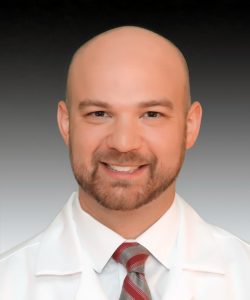Probiotics are a relatively new field in nutrition and in our specialty of gastroenterology. A probiotic is one or more bacteria that most often you take in a pill or dairy product form. It is hoped that they take up residence in the human colon, compete favorably with the huge numbers of bacteria already there, and then provide health benefits.
You are referred to our essay The Amazing Colonic Cauldron for details on the human colon. Here, you will find an up-to-date description of our knowledge of what actually happens in a healthy human colon. You will learn how the colon operates like a smoothly running bacteria factory. The colon is a major health organ, especially if it is finely tuned with the right foods.
Probiotics in the Healthy
Does taking a probiotic do anything for the otherwise healthy individual? Do we really “promote good intestinal health”, “increase immune factors” or “balance the digestive system”? This is what is advertised for probiotics. We in the gastroenterology field consider these somewhat nebulous terms. But it is what the FDA allows a probiotic manufacturer to say.
For the otherwise health person, the answer is that we just don’t know what the long term benefits are. Studying the human colon with its enormous numbers of species and its gargantuan total number of bacteria is very difficult, time consuming and expensive. In the normal individual, trying to tease out one or two health benefits years down the road does not have great appeal to researchers nor food companies. If you are getting an adequate supply of fiber, from 25-35 grams of fruits and vegetables each day, you likely don’t need additional probiotic bacteria. Your own colon bacteria are growing just fine and providing lots of health benefits on their own.
Probiotics and Intestinal Diseases
Here the story may be different. Drug and probiotic companies find it much easier to study a group of people with a specific disease, give them a probiotic and see if they improve. So we have seen studies appearing in the medical literature suggesting medical benefits for the following:
- Intestinal infection in small children and infants – Some probiotics appear to help clear these infections more quickly.
- Intestinal infections with the nasty Clostridium difficile bacteria – This colon infection is rampant in hospitals – one probiotic in particular seems to help in clearing this infection.
- Pouchitis – A pouch may be created by a surgeon from the small bowel during certain types of colon surgery. This pouch can then become infected. Certain probiotics have been shown to be helpful in clearing the infection and inflammation in the pouch.
- Antibiotic use – Since every antibiotic taken by mouth will indiscriminately destroy huge numbers of healthy colon bacteria and provide a space for the bad, resistant bacteria to grow, many physicians, especially pediatricians, may give a probiotic with an antibiotic. The benefit of this is still not firmly proven but it does make some sense.
- Irritable bowel syndrome (IBS) – We now know that the bacterial makeup in patients with IBS is different than in those without IBS. We still don’t know what this means. Some early studies with certain probiotics suggest an improvement in certain symptoms such as bloating.
- Ulcerative colitis and Crohn’s disease – The data in these disorders and probiotics is very early. There are some suggestive benefits but nothing conclusive has yet been shown.
- Allergies – there are some interesting medical studies that suggest infants and even expectant mothers who take a probiotic have infants who are less prone to allergies. Check with your physicians.
- Immune factors – the word immune is used by the probiotic and other dietary supplement manufacturers as a buzz word suggesting mysterious benefits with their products. However, your intestine and especially your colon already have an incredibly robust immune system. Some probiotics may increase certain immune factors but this may be no more than adding a drop to a bucketful of water. We are not sure if it does much good. Simply eating an adequate amount of vegetables and fruits fiber or taking a prebiotic powder will likely cause your present colon bacteria to maintain a very strong immune system in the colon.
- Colon polyps and cancer – there are no medical studies to suggest any preventative benefit here.
Final Advice on Probiotics
- If you are healthy, you likely don’t need probiotics, particularly if you eat 25-35 grams of vegetables and fruits per day.
- If you have an intestinal disorder, see your physician regarding probiotics.
- Select a probiotic as recommended by your physician and from a reputable manufacturer.
- Yogurt and other dairy products have probiotics in them. However, it is amazing how much sugar and how many calories are present in yogurt, especially the flavored kinds. The real benefit of calcium in yogurt and the uncertain effect of probiotics in the healthy may outweigh the excessive calories and sugar in these products. Read labels, become knowledgeable and make your own decisions on yogurt.
- Take a probiotic with meals rather than on an empty stomach so as to dilute it with food and keep it away from the stomach’s potent acid. In addition, go light on the fats and oils, either vegetable or animal, as any fat in food will delay the stomach’s emptying. The longer the probiotic stays in contact with the stomach acid, the more likely the acid will kill the bacteria.
- Do not take a probiotic if you have any serous underlying medical problem without clearing it with your physician. In particular, this is a must if you have AIDS, HIV, an immune medical problem or are on chemotherapy.
Bottom Line
Your colon bacteria factor does just great if it is fed properly. Eating 25-35 grams of vegetables, fruits and grains a day is the healthiest way to promote and maintain good bacterial growth within the colon. Probiotics may be helpful in certain circumstances and with certain medical disorders. Check with your physician.


